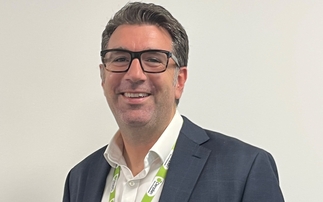Company cash plans have experienced the most growth in recent years. But do issues around excess and how employers integrate these with traditional PMI policies mean they are heading for trouble? Fiona Murphy reports
In recent years, company-paid cash plans have been the biggest success story of the healthcare market. But does their success have any baggage that may weigh down the market in the future?
According to LaingBuisson's Health Cover UK Market Report 2013, the market continued to be "polarised". There had been a strong increase in employer-funded cash plans of 15.4% to reach 588,000 contributors.
Meanwhile, there was a continued fall in individual/employee-paid contributors of 3.7%, moving the individual total to 2.01m - a historic low, LaingBuisson said.
Peter McAndrew, sales director at Health Shield, said of company-paid schemes: "This constant growth has been primarily driven by the healthcare intermediary market, responding to the changing needs of their clients.
"As employers focus more on health and wellbeing initiatives to reduce absenteeism and cover duty of care issues, the rising costs of private medical insurance (PMI) products prohibit the inclusion of all employees into premium PMI schemes. Cash plans can fill this gap, providing inexpensive cover for day-to-day healthcare for all employees within a company."
David Castling, commercial sales manager at Engage Mutual Assurance, attributed the success of cash plans to the flatlining traditional PMI market: "We have a contracting PMI market in the corporate and individual space as prices are going up as they struggle to keep pace with medical technology. So, the claims are going up and premiums are not keeping pace with the claims that are going out.
"That is putting budget strain on the corporate clients when they come to renewals. The broker market is being challenged over what to do to keep premiums down and asking ‘what are the other options available out there?'"
Paul Shires, sales and marketing director at Westfield Health, said the improving economy had driven growth: "We have seen more success in companies organically recruiting more people and offering higher levels of cover, more than in previous years coming from our existing client bank."
Sue Weir, chief executive of Medicash, agreed that the company was receiving quicker decisions on purchases with shorter lead times. She added that more niche sectors, such as law firms, were switching onto cash plans, whereas traditional PMI remained the preserve of senior management, whatever the organisation.
Value for money
However, LaingBuisson found spending on health cash plans fell by 2.6% in real terms during 2012. Although this was a sharp deceleration from 2011 and 2010 - when spending fell by 7.5% in each year, the average price paid for cash plans (at an estimated £180) - it still was more robust than in previous years.
As benefits paid out decreased by more than cash plan spending in 2012 (down 3.9% in real terms), margins for cash plan providers moved up to 30% from 29% in 2011. In terms of costs, Castling explained there has been a movement in the market away from the cheapest deals.
"They are looking at value and value does not necessarily mean cheap. The market went to the bottom. It has now gone up the other side of the curve now. There was a lack of engagement; clients did not feel like they were getting something in place; staff were not engaged as the level of benefits were so low.
"We are prepared to spend a bit of money to demonstrate value for money, and there is a lot more focus from the provider and broker market on ‘Can you prove or demonstrate the investment made?'"
Weir agrees there is a greater focus in the market on service levels and cover: "Previously, it was all about driving the price down. Now, I think there's an appreciation that it is not all about saving the coppers.
"Providers are really looking for something that will sit as part of a healthcare strategy for their organisations, such as managing sickness absence and putting a cash plan into a company - [they] can help push those figures down."
Usage
Employer wellness is another key concern. Howard Hughes, head of employer marketing at Simplyhealth, said an increasingly key usage of cash plans is that they meet employer duty of care needs around the two biggest conditions: mental health and musculoskeletal conditions.











